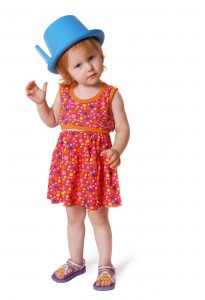 Potty training. Again. While I’ve done this twice already with varying degrees of difficulty, I still find the process to be exhausting. Most days, I want to throw all the cloth diapers out the window – other days I want to chuck the potty seat and trainers along with my determination to teach this skill.
Potty training. Again. While I’ve done this twice already with varying degrees of difficulty, I still find the process to be exhausting. Most days, I want to throw all the cloth diapers out the window – other days I want to chuck the potty seat and trainers along with my determination to teach this skill.
What transition are you working on? Moving your child from your bed to a crib, weaning from breast milk to bottle or cup or giving up diapers in exchange for the potty are not small tasks. And even if you’ve done them before, the reality is you’ve never made this change with this child. It’s all new to him or her. Some changes come about quickly while others drag on stubbornly. That’s where we are with potty training.
Before giving up (or forcing my will upon the poor child), I’ve found it’s helpful to examine my motives behind making the transition at this time.
Motivations for change often fall into three categories:
- Shame/embarrassment. You know you should have taught this skill sooner but didn’t. Maybe you waited until your baby was nine-months old before introducing a bottle. (I’ve been there.) Or you waited until your four-year-old became so big that you can no longer sleep in your own bed comfortably and must demand they sleep elsewhere. The logical part of your brain knows that developmentally, there is no reason why your child is unable to make the change. But the emotional parent part of your brain is too afraid to make it happen.
- Anger/resentment. Do you feel so tired of the way things are and find yourself blaming your child? Maybe you wonder why they can’t just do (or stop doing) this one thing. After a lot of introspection, I realize I’m probably in this category. I don’t feel resentment, but after more than eight years of changing diapers; I’m very, very tired of it. Perhaps I’m ready to move on whether my daughter is or not.
- Competition. You really want to tell the grandparents, or other moms, that your little prodigy accomplished this transition easily and early. You want to brag a little about whatever milestone would give you this edge on being a good mother. It sounds shallow, and you will probably deny you’ve ever felt this way, but chances are you really are competing with another person’s timetable.
I’m tired of changing diapers, that’s for sure. I suspect there’s a little more going on as well. This is my youngest of three children and we are certainly not having any more. I stopped trying to hold on to the baby years mostly because she refused to stay in the baby phase, reaching all of her physical milestones many months before her older sisters.
But I also prefer to breeze through a transition without marking its passing; hoping to avoid any sadness or longing on my part. She gave up breastfeeding sometime in her 17th month, but I do not have a memory of the “last” time nor did I want to dwell on it. I loved breastfeeding and while a part of me misses this connection; I knew that marking an official end would be too painful. We simply moved on.
Potty training will also mark an end to my baby and toddler years. This independence will mean I no longer have any babies in my care. No more diapers. While it will be sweet freedom, it will also mark a major transition for me as a mother. Dragging out this transition for so many months just prolongs the pain.
I’ve come to realize that the one thing that is required of me at this time is love. My daughter will be potty trained in the near future. (I sometimes chant this just to convince myself.)
It’s my job to love her, to love the stage we are in and to use this love to fuel my patience.
It’s this love that will also lift me out of sadness when I realize there are no more babies, no more toddlers and someday, no more little girls in my care.
So, I’ve made a few changes to how we go about potty training. I removed the changing table from her room. We don’t use it anyway and it helps us solidify the transition taking place. I also added disposable diapers to my shopping list. While we use only two diapers a day for nap and bedtime, I need the mental and physical break from washing them. We’ll continue making the transition using consistent behaviors, but I’ll relax my timetable and renew my love for caring for a toddler.
Mom Dare: Life is filled with one transition after another. Look at what changes you are trying to make in your life and with your children. Examine your motivations, remove the negative emotions and concentrate on love. Use this positive emotion to feed your actions each day as you bring about a positive change.

 October is
October is